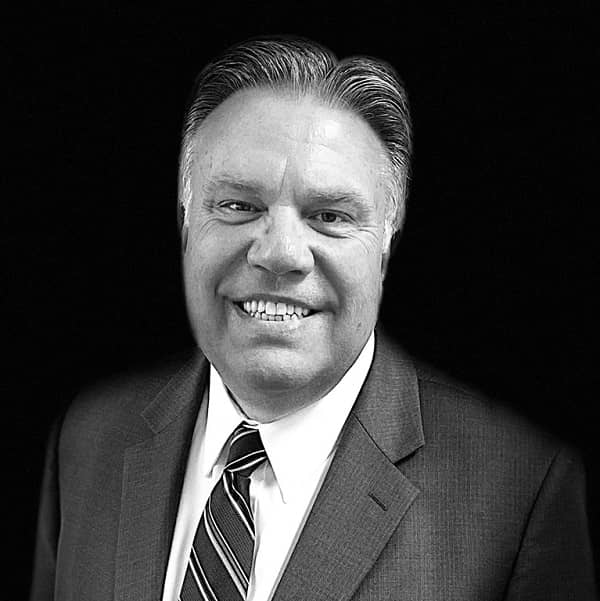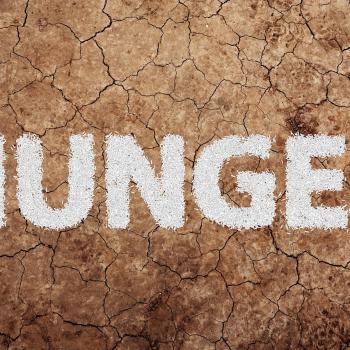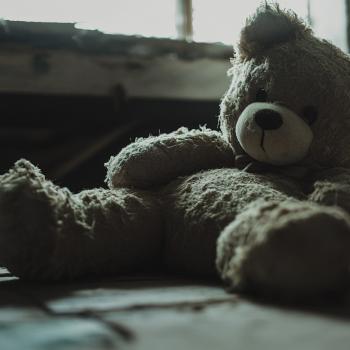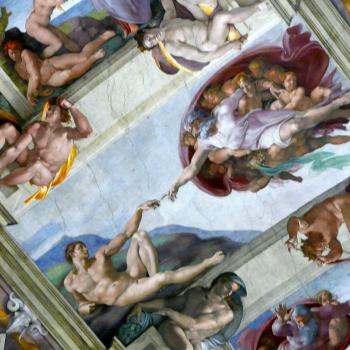
"Heaven and hell are made of other people." This comment by one who had spent his life in a "people" profession, emphasizing communication, carries much of the wisdom of experience. As 7-day Christians, we tend to think of heaven as being with people we love. Also most of us admit that there are people we approach with some concern, even fear. The author of the heaven/hell comment explained that people are "keenly sensitive" to disparaging opinions of others. "That fear is a profound emotion. It hurts."
Out of Hiding
I experienced intense people fears during my brief and limited sports career. My years growing up in Africa did not prepare me for the sports-saturated U.S. culture. Children in my new school were expected to be knowledgeable and skilled at football, basketball, and baseball. I wasn't. I was picked last for any team. No one wanted to lose because of me, and I didn't want to lose because of me either.
I never played because I didn't have skills; I never gained skills because I never played. By high school I solved the problem by becoming the school mascot and cheering for others from inside a bulldog costume. Any foolishness would be on the bulldog, not on me.
As an adult I didn't worry about sports—until I was "elected" at the university where I taught to be on a faculty basketball team to play against a team of wheelchair athletes for Disability Awareness Week. Apparently no one had told the students I wasn't supposed to be picked for teams, and I couldn't hide behind the big foam head of the bulldog.
Warming up before the game, I was almost too terrified to move. But as I looked out at the large crowd, I noticed no one was looking in my direction. Everyone was amazed by the skills of the wheelchair athletes; these players deserved to be the focus of attention. I was part of the backdrop, and that felt fine. What others thought of me didn't matter. I did something I had never done before—I had fun playing a sport.
People are all different; so are their fears and those who may promote and abuse the fears. But if we understand some of the risks and dangers, we can often find ways to respond reasonably and wisely.
Uncomfortable Expectations
In fear, I hid from athletic expectations. No effort—no improvement. I know now that people of all ages share the expectation fear, although adults may hide the fear rather than hiding themselves.
In interviewing adults about their people fears, I learned about another sports expectation. A parent of athletic children remarked, "The adult peer pressure to act a certain way, dress a certain way, and backbite each other as parents or families has been enormous." Another interviewee noted that "the business world includes a lot of peer pressures regarding expectations and competition that are very similar to what we experienced in our teenage years." I recall an individual who generalized to lifestyle: having a house and car equivalent to the neighbors, going on enough vacations to avoid "feeling like a loser."
We may not be able to change society or peer group expectations, but we can find ways to deal with our fears. In their book Social Anxiety, two psychology professors referred to "the stage fright of everyday life," asking, "Why are we afraid of perfectly ordinary people in otherwise normal interactions?"
Fear of having no control, breeds expectation anxiety. With hope of gaining control, I might have asked for help learning sports skills. An author who has published widely advising teenage girls wrote, "You can't live your life worrying that the world is staring at you. When you let people's opinions make you self-conscious you give away your power. . . . The key to feeling [confident] is to always listen to your inner self—[the real you]." When young, I had strengths, but I didn't understand them as a source of power.
Unsociable Media
Regev Elya, who was in military service when Facebook first appeared, found it an enjoyable way to contact friends; significantly, the like button did not exist. Now with "the whole world trying to be liked," we are "inundated with images from others' lives." "Social media used to be an escape from real life. Now, real life feels like an escape from social media."
A pervasive danger of online social media is that people do not have to face their adversaries. Elya warned they can "be as obnoxious and nasty as a human can be . . . [they] say things they would never say in real life." One way to shield yourself is to realize, as mentioned by most who write of the topic, that those who viciously attack your self-esteem probably do so because their own self-esteem is so low. As one writer advised, don't trust your self-esteem with those who least deserve it. Also you can avoid giving nasty people power over you by letting them make you angry. Thomas S. Monson, a highly influential Christian leader, affirmed, "No one can make us angry. It is our choice."
We reduce the potential for angry confrontation if we reason logically about our respondent and the topic. Two 7-Day Christian women seemed to be approaching angry contention after a tragic school shooting. One sister was so upset about the deaths from a mass assault weapon that she expressed her emotions in a Facebook post. A friend from her church, who participated often with her in public service, responded that increasing mental health care was more important than deceasing guns. The anti-gun sister paused and thought about this friend, who she had always liked and respected. Then she wrote expressing her respect and admitting that mental health should be an important consideration. The friend wrote back expressing admiration for the "kind and sensitive heart" of the gun-hating sister. Neither changed position, but the friendship was preserved, and neither felt awkward being with the other at church or in the neighborhood.
Dallin H. Oaks, a former justice now a religious leader, wrote that hostility can "give way to friendship or even love" when individuals practice "understanding and mutual respect." Russell M. Nelson, president of a worldwide Christian Church, praised young women he knew: "Though social media has been flooded with contention, many of you have found ways to encourage others and share our Savior's light," concluding, "Life without God is a life filled with fear. Life with God is a life filled with peace."
Impossible Comparisons
Elya, the former soldier who despaired the addition of "like" buttons, maintained "compare and despair," citing the title of a study "'They Are Happier and Having Better Lives Than I Am': The Impact of Using Facebook on Perceptions of Others' Lives."
Gary E. Stevenson, another Christian Leader warned that "Many (if not most)" social media pictures are unrealistic: "We have all seen beautiful images of home décor, wonderful vacation spots, smiling selfies, elaborate food preparation, and seemingly unattainable body images." It's not fair to compare our unglamorous daily lives to these "well-edited, perfectly crafted lives"; we can become discouraged and envious—feeling like failures. He recommends that we view these images through the lens of our Christianity.
Takashi Wada, who converted to Christianity as a young man in his native Japan, experienced this perspective. "When I first read the New Testament . . . as I recognized my true identity before God, I realized my infinite potential through Christ's Atonement."
A bulldog costume may feel safe, but the time comes when we have to take it off and introduce the real person who has been wearing it. A secular writer dealing with social media pointed out that we are so unique that none of us is going to be accepted by every social or social media group. He wrote that as humans we are "pack animals," and some of us need quite a while to find our pack. When I took off my bulldog costume and became part of a pack of professors who cared more about students than about our image, I had found my group.
Don't let people fears compromise your standards, your individuality, or your commitment as a 7-day Christian. Rise above uncomfortable expectations, unsociable media, and impossible images and comparisons. Become the incredible person God wants you to be.
11/29/2022 10:16:13 PM





